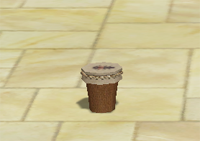The Wiki for Tale 7 is in read-only mode and is available for archival and reference purposes only. Please visit the current Tale 11 Wiki in the meantime.
If you have any issues with this Wiki, please post in #wiki-editing on Discord or contact Brad in-game.
Difference between revisions of "Skinlicker"
m (Created page with "{{Languages}} {{Template:ItemInfo|weight=1|bulk=1|image=Insect.png|description=Insect.}} == Source == They are collected automatically in the course of various basic tasks onc...") |
m |
||
| Line 2: | Line 2: | ||
{{Template:ItemInfo|weight=1|bulk=1|image=Insect.png|description=Insect.}} | {{Template:ItemInfo|weight=1|bulk=1|image=Insect.png|description=Insect.}} | ||
| + | |||
| + | One of the many [[Insect]]s found in Egypt. | ||
| + | |||
== Source == | == Source == | ||
Revision as of 18:29, 18 January 2016
| English | Deutsch | français | magyar | Türkçe |
One of the many Insects found in Egypt.
Source
They are collected automatically in the course of various basic tasks once one has learned the Arthropodology skill. They may be stored in chests like any other resource.
How to obtain:
- Slaughtering Camels, Sheep, Hens, or Rabbits
This would seem to be a very hard class of insects to find, and indeed a lot of people have trouble here, but there is a simple solution: Rabbits! These breed so quickly and carrots are so easy to grow nowadays that with a couple of rabbit hutches under your command you will soon be overflowing with Livestock Dwelling Insects. Hens are a good supplement, however camels are likely to be the slowest method of obtaining these insects.
Research and Tuition
Uses
Specific insects need to be collected for increasing degrees of the Fly Tying skill and are considered indicators of the insect rarity.
